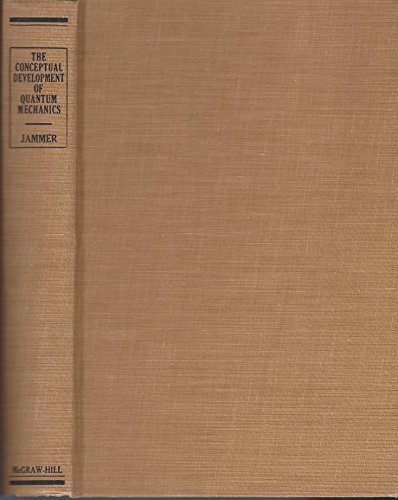The Conceptual Development of Quantum Mechanics book download
Par martinez lou le samedi, juin 25 2016, 00:41 - Lien permanent
The Conceptual Development of Quantum Mechanics. Max. Jammer

The.Conceptual.Development.of.Quantum.Mechanics.pdf
ISBN: 0070322759,9780070322752 | 412 pages | 11 Mb

The Conceptual Development of Quantum Mechanics Max. Jammer
Publisher: MGH
Market: Historians of science and students. An advanced treatise is the monograph The Conceptual Development of Quantum Mechanics by Max Jammer (New York: McGraw-Hill, 1966). He was, however, renowned as an excellent Contemplating the infinite is a much nicer route than contemplating the tawdry, to get on the path of eagerly wrestling with difficult concepts. In terms of physics, while Schrödinger's contribution to the development of quantum physics was pivotal, it ends up seeming like a bit of an aberration, with his late-career turn to dabbling in biology and Vedic philosophy looking a little more typical. Quantum mechanics predicts that photons, particles of light, are both particles and waves simultaneously. One of the difficulties with understanding the derivation of quantum mechanics (QM) from tautological modal realism [1] is that. Now, the harsh lesson is: Abandon the random variable, then concepts like "I", "choose" and "exist" become entirely abstract. An enlarged and revised edition of a volume that offers a systematic and comprehensive account of the historical development of quantum mechanics for the historian and philosopher of science. One of the fundamental concepts of quantum mechanics suggests that particles like photons have properties of both waves (like radio waves) and particles (like concrete objects). As a photon particle travels, its electric and magnetic fields vary, but are Artur Eckert, in a 1991 paper, used Bell's Theorem and quantum entanglement to develop a quantum channel over which a key can be securely shared. However, the Hamiltonian and Lagrangian mechanics were the cornerstone of quantum mechanics, as certain concepts developed in their work were heavily used in the formulation of quantum physics. A "particle" or a "wave" are the conceptual framework in which we conform reality, in order to observe it. Early on I developed an expectation that you would explain and give examples of how randomness emerges from totally determined totality.